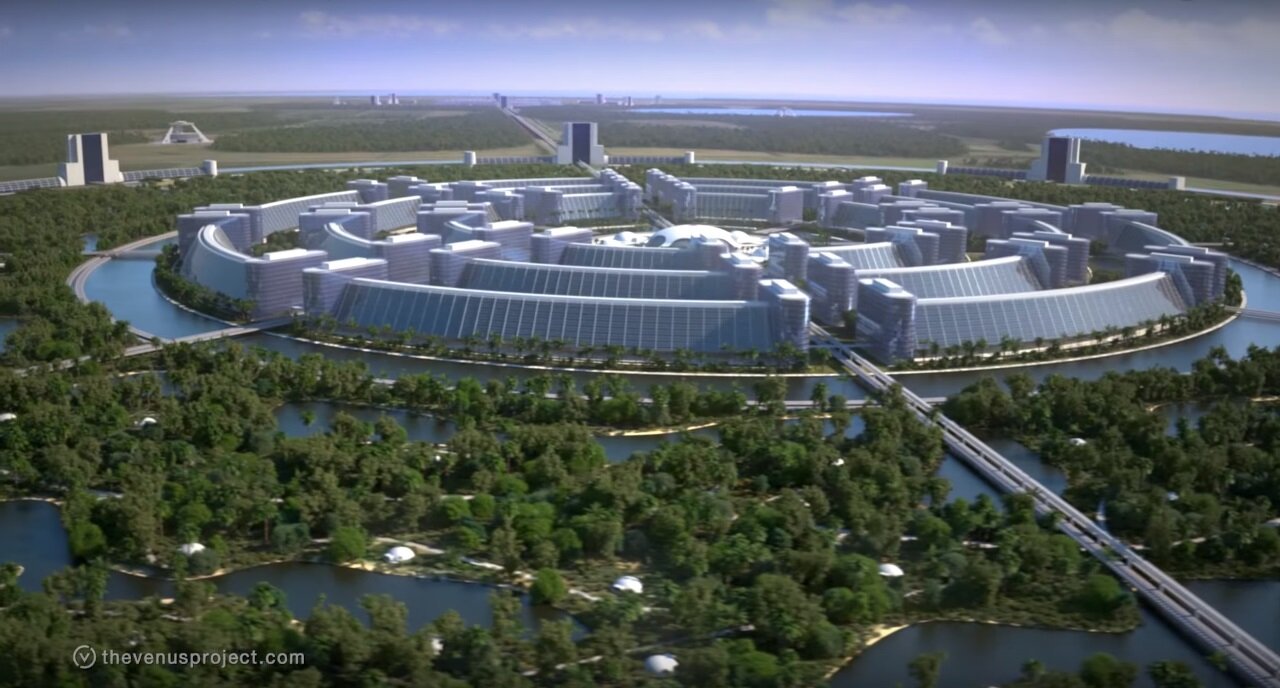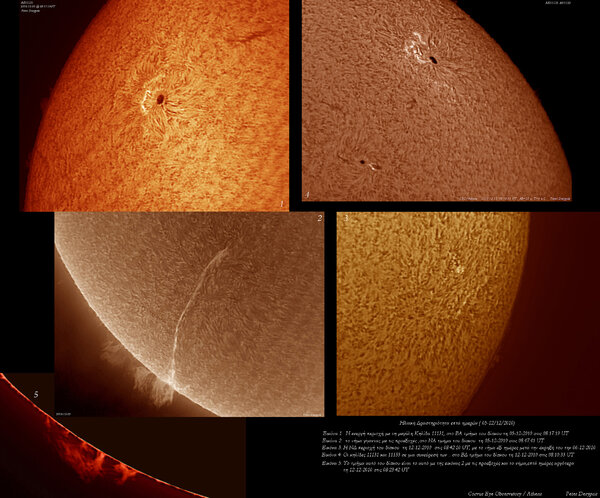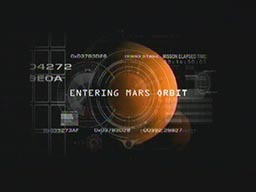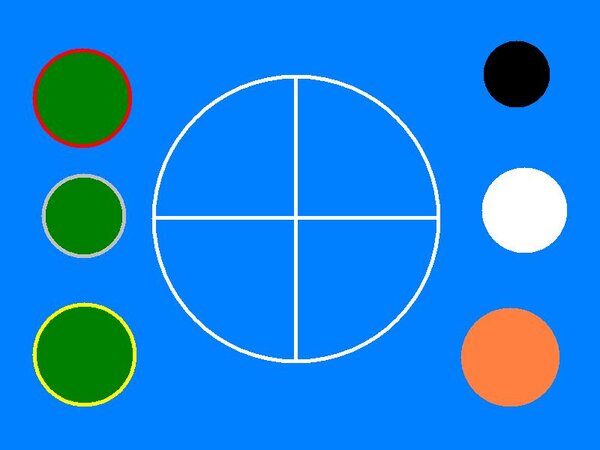-
Αναρτήσεις
715 -
Εντάχθηκε
-
Τελευταία επίσκεψη
Τύπος περιεχομένου
Forum
Λήψεις
Ιστολόγια
Αστροημερολόγιο
Άρθρα
Αστροφωτογραφίες
Store
Αγγελίες
Όλα αναρτήθηκαν από terring
-

Έρχονται τα ξαδέρφια μας να πληρώσουν τα χρέη μας στο ΔΝΤ
terring απάντησε στην συζήτηση του/της greekdiver σε Λοιπές Αστρονομικές Συζητήσεις
Και μαζί με τους εξωγήινους θα έρθει και ο Άι Βασίλης, να μας μοιράζει τα δώρα -

Αστρονομικές Παρουσιάσεις
terring απάντησε στην συζήτηση του/της netrionio σε Αστρονομία, Αστροφυσική και Κοσμολογία
Carl Sagan, ο ποιητής της Αστρονομίας, ο άνθρωπος που ένωσε τη Γη με το Σύμπαν Και για να απαντήσω στο θέμα, η Αστρονομία δεν είναι μια ξερή επιστήμη. Δεν αποτελείται μόνο από παρατηρήσεις και μαθηματικές εξισώσεις. Στην Αστρονομία θα βρούμε ποίηση, φιλοσοφία, δέος και θαυμασμό. Πόσες φορές δεν έχουμε φιλοσοφήσει το μεγαλείο του Σύμπαντος; Πόσες φορές δεν έχουμε αναρωτηθεί για τη θέση και τον ρόλο του Ανθρώπου στο Σύμπαν; Πόσες φορές δεν έχουμε θαυμάσει και τρομάξει; -

..από την ηλιακή δραστηριότητα 7 ημερών...
Ο terring σχολίασε σε Despet για αστροφωτογραφία Ο Ήλιος στο Ha
-

Δείτε το!!
terring απάντησε στην συζήτηση του/της Thanos Svolos σε Αστρονομία, Αστροφυσική και Κοσμολογία
Πολύ ενδιαφέρον . Το βίντεο αυτό το έχω ξαναδεί πριν από αρκετά χρόνια στη τηλεόραση. Στο τέλος αναφέρει ότι το Σύμπαν είχε έναν δημιουργό, κι ότι η κοσμική δομή του μόνο από κάποιον δημιουργό θα έπρεπε να προκληθεί. -

Ανακοίνωση της NASA για ευρήματα στην αστρο-βιολογία
terring απάντησε στην συζήτηση του/της hypest σε Αστρονομία, Αστροφυσική και Κοσμολογία
Τέλος της ανακοίνωσης -

Ανακοίνωση της NASA για ευρήματα στην αστρο-βιολογία
terring απάντησε στην συζήτηση του/της hypest σε Αστρονομία, Αστροφυσική και Κοσμολογία
2 είναι οι μεγαλύτερες χαρές σήμερα, τα γενέθλια της Britney Spears (άσχετο ) και η δικαίωση του Carl Sagan (ΣΧΕΤΙΚΟΤΑΤΟ) -

Ανακοίνωση της NASA για ευρήματα στην αστρο-βιολογία
terring απάντησε στην συζήτηση του/της hypest σε Αστρονομία, Αστροφυσική και Κοσμολογία
Αυτό το βακτηρίδιο έχει εντελώς διαφορετικό D.N.A.! Κι αφού υπάρχει ζωή στη Γη που ζει σε ΤΟΞΙΚΟ περιβάλλον, όλα είναι πιθανά για εκτός Γης! -

Ανακοίνωση της NASA για ευρήματα στην αστρο-βιολογία
terring απάντησε στην συζήτηση του/της hypest σε Αστρονομία, Αστροφυσική και Κοσμολογία
ΕΝΑΡΞΗ ΤΗΣ ΑΝΑΚΟΙΝΩΣΗΣ!! -

Ανακοίνωση της NASA για ευρήματα στην αστρο-βιολογία
terring απάντησε στην συζήτηση του/της hypest σε Αστρονομία, Αστροφυσική και Κοσμολογία
Το Star αμόλησε την Πετρούλα να ψάχνει για εξωγήινους. Είναι γελοίοι οι άνθρωποι -

Ανακοίνωση της NASA για ευρήματα στην αστρο-βιολογία
terring απάντησε στην συζήτηση του/της hypest σε Αστρονομία, Αστροφυσική και Κοσμολογία
Ελπίζω να μη πούνε ότι η έρευνα για εξωγήινη ζωή είναι χάσιμο χρόνου -

Παρατηρήστε τον Ήλιο όσο προλαβαίνετε (Τι άλλο θα ακούσουμε;
terring απάντησε στην συζήτηση του/της supernovus σε Παρατήρηση Ηλίου
Πάντως τα 15 λεπτά δημοσιότητας τα κέρδισε. Δεν είναι δύσκολο, απλά λες μια μπούρδα και γίνεσαι γνωστός παγκοσμίως -

Παρατηρήστε τον Ήλιο όσο προλαβαίνετε (Τι άλλο θα ακούσουμε;
terring απάντησε στην συζήτηση του/της supernovus σε Παρατήρηση Ηλίου
[activating σοβαρότης mode] Το Σύμπαν ανήκει σε όλους και σε κανέναν ξεχωριστά. Ο Ήλιος δεν ανήκει ούτε στην Ισπανίδα, ούτε σ' εμένα, ούτε στον Μπάρακ Ομπάμα, ούτε στον Φασούλα. Ανήκει σε όλη την αδελφότητα του Ηλιακού Συστήματος, σε κάθε μορφή ζωής στη Γη και όχι μόνο. Το ίδιο ισχύει και για το Σύμπαν. Δεν υπάρχουν τίτλοι ιδιοκτησίας και σύνορα, αυτά τα βάζουμε μόνο εμείς με το πιθηκίσιο κεφάλι μας. Το Σύμπαν ανήκει σε όλους, και δεν εννοώ μόνο τη ζωή στη Γη. [deactivating σοβαρότης mode] [activating σουργελέ-ολέ-ολέ mode] Εγώ πάντως λέω ν' αγοράσω τον Άρη. Αν θέλει η N.A.S.A. να τον αποικήσει, πρώτα πρέπει να ρωτήσει εμένα και τους τίτλους ιδιοκτησίας μου [deactivating σουργελέ-ολέ-ολέ mode] -

Μετέωρο με νότια πορεία
terring απάντησε στην συζήτηση του/της takis63 σε Παρατήρηση κομητών, αστεροειδών, μετεώρων
Μήπως έχει σχέσει με αυτό; --> Πύρινη μπάλα στον ουρανό, αναστάτωσε τους κατοίκους του νομού Λάρισας -

Το σύμπαν της τέχνης και οι τέχνες τ' ουρανού
terring απάντησε στην συζήτηση του/της kkokkolis σε Λοιπές Αστρονομικές Συζητήσεις
-

Ζωή στο Ηλιακό Σύστημα... εκτός από τη Γη!
terring απάντησε στην συζήτηση του/της terring σε Αστρονομία, Αστροφυσική και Κοσμολογία
Αυτή η λεπτομέρεια δηλώνει ότι "έστω ότι τα βρήκαμε. Πως θα ήτανε;". Είναι πολύ συνηθισμένο και πολύ ποιο αληθοφανές, ειδικά στα ντοκιμαντέρ επιστημονικής φαντασίας. Αυτά τα ντοκιμαντέρ μελετούν πράγματα όχι όπως είναι, αλλά όπως θα μπορούσαν να είναι, όπως αν αλλάζαμε την ιστορία ή πως θα είναι η ζωή στη Γη χωρίς τον άνθρωπο. -

Ζωή στο Ηλιακό Σύστημα... εκτός από τη Γη!
terring δημοσίευσε μια συζήτηση σε Αστρονομία, Αστροφυσική και Κοσμολογία
Τον Ιούνιο του 1999 το Βραζιλιάνικο περιοδικό Superinteressante παρουσίαζε μερικές πιθανές μορφές ζωής που θα μπορούσαν να μοιράζονται μαζί μας το Ηλιακό Σύστημα. Κατά καιρούς έχω παρουσιάζει σχετικά θέματα, όπως η πιθανή ύπαρξη ζωής στον Δία ή στον Πλούτωνα. Εδώ όμως τα πράγματα περιπλέκονται, γιατί είναι πιθανόν να μην υπάρχουν μόνο μικρόβια εκτός της Γης μας. Όλες οι παραθέσεις και οι φωτογραφίες που ακολουθούν είναι από το Alien Wiki.com. Ερμής Ο Ερμής είναι βασικά ένα καυτό ξεροκόμματο, μικρός και νεκρός. Νεκρός; Αφροδίτη Η Αφροδίτη είναι μια πραγματική κόλαση, αν και υπάρχουν θεωρίες για μικροοργανισμούς στην ατμόσφαιρα της. Μόνο; Άρης Κάποτε πιστεύαμε ότι ο Κόκκινος Πλανήτης ήταν το λίκνο ενός διαστημικού πολιτισμού. Σήμερα πιστεύουμε ότι μόνο μικροοργανισμοί θα υπάρχουν εκεί. Αύριο που θα πάμε εκεί, τι θα δούμε; Δίας Ο Carl Sagan είχε υποθέσει την ύπαρξη ζωντανών μπαλονιών στην ατμόσφαιρα του Δία. Γιατί όχι; Κρόνος Ο Robert L. Forward είχε γράψει ένα μυθιστόρημα για πλάσματα που κατοικούν τον Κρόνο. Αν υπήρχαν στα αλήθεια, πως θα ήταν; Ουρανός Όταν η διαστημοσυσκευή Voyager 2 εξερεύνησε τον Ουρανό, βρήκε βασικά έναν βαρετό κόσμο. Φαινομενικά τουλάχιστον... Ποσειδώνας Στον Ποσειδώνα φυσούν άνεμοι που ξεπερνούν την ταχύτητα του ήχου! Λίγο δύσκολο να υπάρξει ζωή εκεί, εκτός κι αν... Και ασφαλώς δεν ξεχνάμε την Ευρώπη, την Καλλιστώ, τον Τιτάνα, τον Εγκέλαδο και ίσως και τον Τρίτωνα, δορυφόρους άλλων πλανητών που συγκαταλέγονται στους υποψηφίους για ύπαρξη ζωής. Ίσως και ο Ήλιος να φιλοξενεί ενεργειακές μορφές ζωής! Ίσως η ζωή να μην είναι τόσο σπάνια όσο πιστεύουμε, αλλά μη ξεχνάμε ότι όλα αυτά είναι εικασίες. Πρέπει να ταξιδέψουμε εκεί για να ανακαλύψουμε αν όντως έχουμε κοσμικά αδέλφια και στους άλλους πλανήτες εκτός της Γης -

Υπάρχει Ζωή Αλλού
terring απάντησε στην συζήτηση του/της astro-bob σε Αστρονομία, Αστροφυσική και Κοσμολογία
Και βακτήρια να είναι, εφόσον είναι εκτός Γης είναι εξωγήινη μορφή! Και πως είμαστε σίγουροι ότι βρέθηκε ζωή εκτός Γης; Εκτός κι αν ήταν ένα παράδειγμα αυτό. Όμως από την άλλη, αν οι συνθήκες ευνοήσουν μια οποιαδήποτε μορφή ζωής, γιατί να περιοριστεί μόνο στα μικρόβια; -

Υπάρχει Ζωή Αλλού
terring απάντησε στην συζήτηση του/της astro-bob σε Αστρονομία, Αστροφυσική και Κοσμολογία
Διοξείδιο του άνθρακα στην Ευρώπη; Πρώτη φορά το ακούω αυτό. Έχει βέβαια ατμόσφαιρα, αλλά πολύ αραιή και πλούσια σε οξυγόνο, αν εννοείς αυτό. Επίσης το διοξείδιο του άνθρακα δεν είναι "κακό αέριο", αφού διατηρεί τον πλανήτη μας αρκετά ζεστό. Αν μάλιστα είναι σε ήπια ποσότητα, ακόμη καλύτερα. Αν είναι όμως σε υψηλά επίπεδα, θα έχεις ένα ανεξέλεγκτο πλανητικό θερμοκήπιο σαν την Αφροδίτη. Και ούτε εγώ σου πάω κόντρα, απλώς συζητάμε -

Ο κοσμικός κήπος
terring απάντησε στην συζήτηση του/της terring σε Αστρονομία, Αστροφυσική και Κοσμολογία
Πιστεύω ότι δεν πρέπει ούτε να υπερεκτιμούμε, ούτε να υποτιμούμε τους εαυτούς μας, δεν είμαστε Θεοί μα ούτε και παράσιτα που πρέπει να πεθάνουν. Συμφωνώ ότι περνάμε μια περίεργη περίοδο, ίσως η σημαντικότερη στην ιστορία της ανθρωπότητας, γιατί θα κρίνει αν είμαστε αρκετά έξυπνοι για να επιβιώσουμε χωρίς να ρημάξουμε τον πλανήτη μας, ή αρκετά βλάκες για να αυτοκαταστραφούμε. Και θα τη γλιτώσουμε, όταν ανακαλύψουμε πραγματικά ποιοι είμαστε και σταματήσουμε να θεοποιούμε ή να δαιμονοποιούμε τους εαυτούς μας. -

Ο κοσμικός κήπος
terring απάντησε στην συζήτηση του/της terring σε Αστρονομία, Αστροφυσική και Κοσμολογία
Δώστε μου λίγο χρόνο και θα το μεταφράσω . Υπάρχουν βέβαια προγράμματα τύπου Systran που κάνουν μεταφράσεις στο άψε σβήσε, αλλά το αποτέλεσμα είναι απαράδεκτο. -
Αυτό είναι ένα καταπληκτικό κείμενο που γράφτηκε από τον Anders Sandberg, καθηγητή του Stockholm University. Εδώ περιγράφει το όραμα του για το μέλλον του ανθρώπου, όπου ο ρόλος μας θα είναι πλέον η διασπορά της ζωής και της νοημοσύνης στο Σύμπαν. A Vision I have a vision of the future. Within a fairly short time we will have the technological tools to manipulate matter at the molecular scale, making both manufacturing and recycling nearly perfect. Advances in artificial intelligence will enable more or less smart devices to act on their own, allowing teams of robots to build vast structures as desired or process enormous amounts of information in order to design solutions to many problems. We will have the tools to redesign ourselves and our environment according to our visions. Soon the solar system will change beyond recognition. Surrounding the Earth space habitats with their own artificial ecospheres will orbit in vast bands. Within each there is room for millions of people to shape their own culture. Similar, but even vaster habitats are being wrought by the material of the asteroid belt and the cometary nuclei. Slowly a sphere is being formed by millions of habitats, solar power collectors and other devices around the sun drinking its life-giving energy and radiating communications of all kinds. In the end most of the solar output will be used by life rather than dissipate into the cold of space. On Mars eagles soar above the Valles Marineris and dolphins explore the new Borealis Sea as ecopoiesis and terraforming makes it inhabitable. What started out as a apocalypse of comets guided to crash into the planet and self-replicating nanomachines producing greenhouse gases, breaking down carbonate rocks and freeing water first made the planet warm and wet enough for life . mostly genetically modified algae and lichens . to survive on their own. Gradually the life transformed the environment into something more and more terrestrial species could inhabit. Mars will never become a copy of Earth; the lower gravity, the red rocks, the uneven seasons, colder and dryer climate and the two moons will make sure of that. Over the eons life will adapt more fully to Mars until what started out as transplanted species will have become entirely new species that are truly native. On Mercury an ecosystem of machines is thriving. Self-replicating machines mine the rocky surface, extracting metals and semiconductors they use to build solar collectors. Deliberately designed to evolve they are inventing an ecology of glittering artificial life in shapes unimaginable to human planning. Some solutions are as creative and unexpected as wood . a wonderful material with many desirable properties, but nothing that any engineer could deliberately think up . and serve as inspiration for the rest of the solar system. In the seas of Europa adapted deep-sea lifeforms are slowly colonising the volcanic vents on the bottom of the sea. Most of them are variants of the ecologies around terrestrial volcanic vents, but strange new algae designed to make use of the weak light and heat now live beneath the thick ice. On Earth they have survived in their nearly unchanging ecological niche for hundreds of millions of years; on Europa their niche will likely persist for billions of years. In the tar-like seas of ethane on Titan new forms of life designed from scratch are evolving. Instead of water they use hydrocarbons, and instead of photosynthesis they gather nutrients raining down from the clouds and the forces of the vast tidal flows. And around the gas planets vast projects are underway to build ships that will bring the seeds of the solar system outwards to other stars. Fuelled by energy from the enormous solar collectors and mass from the gas atmospheres, they hold the collected information of the life of the solar system . genomes, human culture, the blueprints for new habitats. Are they crewed? Some might be filled with humans or human descendants, others by our artificial descendants or simple replication systems. Once they reach another system they will settle on a suitable asteroid and use it to build a larger base with room for greater minds, who in turn will use their stored knowledge and equipment to built yet larger and more versatile homes. Just as a tiny seed can unfold a few small leaves and roots that gives it the energy and nutrients needed to grow more leaves, more roots and strive towards the sun, the solar system seeds will bootstrap themselves into ever greater and diverse forms once they reach their destination and finally become adult civilisations. Lets zoom outwards in time and space. From the perspective of the galaxy the yellow dwarf star on the outskirts of the Orion arm has never been unusual. But first it sends out a burst of strangely ordered radio signals. Soon afterwards it begins to change as if the solar system around it was turning into a globe more carefully using its energy for something. Nearly instantly . a few scant millennia . other stars in the vicinity begins to change in a variety of ways. A wavefront is expanding outwards turning empty solar systems and raw matter into something new and complex: habitats for life. In some cases this might be the terraforming of planets or the construction of habitats in space. In other cases entire planets are dismantled to build enormous concentric shells of energy collection, computing nodes and cooling systems that enable vast computer networks to house information ecologies far more complex than the biological one that once grew on the first planet. Here and there entire stars are disassembled to provide for longer lasting sources of warmth than they would naturally be. As the wavefront passes the galaxy changes, becomes a home to life and thought and not just to mass and energy. And after it has transformed the milky way the wave continues outwards . to the Magellanic clouds, to Andromeda and the other galaxies in the local cluster, taking the vast jump to the Virgo cluster, embracing the local supercluster and beyond. This is my vision of the future: a future where life embraces and fills the universe. One might argue that what I have described is not the triumph of life but the triumph of human culture and technology. But what is human culture and technology but an expression of life? The human species is just another species doing what it can to survive. In our case we stumbled on the unusual ecological niche of making tools to help us and eventually build our own ecological niches, something which was aided by (or perhaps caused by, causing or co-evolving with) our vast communications and thinking abilities. There are many species that use simple tools to survive better, or construct environments that please them . insect larvae assembling gravel coatings, birds picking caterpillars with sticks, corals constructing reefs. Are they in any respect different from our clothing, hammers and cities? A city is not just an artefact but also an ecosystem: countless other species have moved in and survive there thanks to the actions of the keystone species Homo sapiens. Given enough time natural evolution would likely produce adaptations to city life among the plants and animals just as bizarre and beautiful as the one seen on coral reefs and in tropical jungles. It is only because our cities are so young and not intended to be ecosystems (and because we do not pay attention) they appear impoverished and sterile. It is true that humans will play a key role in this vision. But it is not primarily a story about the hegemony of humanity over the natural world. It is true that this vision has room for all varieties of human futures and ambitions, from quiet contemplation to vastening into godlike posthuman states. While the humans might consider themselves the rulers, they are unwittingly serving life by expanding its niches to new places, places where life would never have been able to go naturally. Evolution can never reach a local optimum separated from current species by a sufficiently broad desert of non-viable species; no matter what it cannot evolve the molecular machinery to build diamond skeletons, spaceflight or survival on Mercury. This is something that requires what is currently uniquely human, foresight and technology. Intelligence is necessary for the long-term survival and expansion of life. By expanding outwards (for whatever reasons) humanity brings with itself other species. Some as food and companions, some as freeriders and parasites and likely, when crossing great gulfs, many .just in case. to make sure no diversity is lost. Some might be visionaries wanting to save or expand life for its own sake, but the beauty is that not all humans need to be. A vision that required all humans to act as one would remain just a beautiful vision; a vision merely requiring that humans continue to do what it always has done is far more likely. Pessimists among us might complain that in the past we humans have often destroyed the environment of life, and that this is also something that is likely to continue. But most of this destruction has been due to ignorance and limited resources: when you are half starving you do not care that your next meal is an endangered keystone species. It is thanks to the affluence and efficiency of modern technology we can reduce our ecological footprints and undo some of the damage. If one believes that mankind is always the destroyer, then my vision is not possible. But given that assumption no other positive vision of the future is possible, not even sustainability on the Earth. On the other hand, if one assumes humanity can take care of its biosphere (however imperfectly), then there is no hindrance to spreading that biosphere outwards and hoping for the best. As I see it the word life should not be interpreted narrowly and parochially as our particular kind of water-protein organisation but as complex self-replicating and evolving systems as a whole. The machine ecology of Mercury, the methane ecology of Titan and the software living within the vast computing networks are all examples of generalised life. We will not just expand the niches of traditional life but also create new kinds of life . as experiments, as art, as adaptations. And these forms of life are equally worth our reverence and appreciation as the traditional wet kind. There is no fundamental difference between created and born life, except possibly that the former has a morally responsible .parent.. Some readers no doubt find my vision distasteful just because it replaces the natural with the artificial. There are those who argue that terraforming a planet is a crime against its natural environment. But when plants begin to colonise a newly formed volcanic island, is that a crime? Hardly, and it is seen as natural. Would it be a crime to deliberately scatter seeds on the island? It might have less of the appeal of surprise a natural scattering would have engendered in a human observer, but from the perspective of the plants and rocks there is no difference. Scattering seeds across the universe is the same thing on a vast scale. Perhaps most important, life remakes itself. A typical tool when left to itself will not change (except for some decay). Life reproduces and evolves, exploring new possibilities almost by definition. Even a strictly manufactured living environment will become something else given enough time. It will become born rather than made, but it could not exist without the initial manufacture. Humanity is both steward of life and a player in its emergence. One might argue that this is just a .quantity is quality. vision, that the number of living things do not matter. Why convert teratonnes or matter into plants, animals and humans when only a few would be necessary? But the same argument suggests that we would be just as well off with a single patch of vegetation in an otherwise empty gravel desert as an entire meadow. One reason the meadow is better than the patch is that it can sustain more species and more complexity than the patch; it can be a part of the interplay between biomes. It is also more stable to damage and is needed to sustain large animals like horses. But it is also necessary to allow more uniqueness. As I see it life has an inherent worth compared to the matter and energy of the universe. It has the potential of growth, change and awareness disorganised rock and plasma lack. Due to its evolutionary and individual past each organism is contingent . it was shaped due to its genes and surroundings in an unique way that will never occur again. Each of us, each blade of grass or bacteria, is a kind of one-of-a-kind snowflake. I hope the universe will be filled with a snowstorm of these. What about other life in the universe? In this ecological vision there is not just room for it, it is something to be sought out, cherished and spread just as we will spread our own kind. Life is life. What about the alternative to my vision? Imagine the following .sustainable. vision: mankind contents itself to the Earth, remaining static either deliberately or by quietly dying out. Life continues on Earth, while the bodies of the solar system revolve as nothing has happened. Species come and go on Earth, while the sun slowly but inexorably increases in luminosity. In a few hundred million years the increasing heat overcomes the homeostasis of the biosphere and it largely dies out, leaving a Venus-like world of heavy smog and gravel. In a few billion years the sun grows into a red giant and engulfs the inner system. What is eventually left is either a frozen husk of slag orbiting a white dwarf or just a hint of extra lithium in the spectrum of the planetary nebula around it. Is this vision desirable? It is the .natural. chain of events that will result if humanity does not change things. There is room within it for billions of species and thousands of grand civilisations. But it ends ignominiously and it is fundamentally limited. On a larger scale there might be biospheres emerging all the time around distant stars: small stalks of grass growing in the dark soil of the Milky Way. But without intelligence supporting them they all shrivel and die before any chance of seeding. Each biosphere, filled with uniqueness and potential, will vanish without a trace, without even one conscious observer. The desire to protect the natural is a desire to protect the contingent and valuable from the ravages of entropy . or just conservatism devaluing human ambition and creativity. Unfortunately the two are often confused. This vision is all about protecting and nurturing nature at its largest by means of vast human ambition. The triumph of the denigration of the artificial and deliberate would be not just the abandonment of humanity but also the eventual betrayal of the only chance life has to continue growing. It has been said that growth is the ideology of the cancer cell. This is true, but it is also the ideology of the orchid. Without constant attempts to sprout seeds everywhere the orchid would die out. Even if it did survive at a guaranteed constant number it would not have any incentive to evolve. It is the constant struggle to produce more orchids that have made orchids evolve their bulbs and air-roots, their amazing flowers to entice insects and vast variety of ecological niches. It is thanks to growth and evolution that we achieve beauty. I propose that we will turn the universe into a garden. Πηγή: Orion's Arm.com
-

Υπάρχει Ζωή Αλλού
terring απάντησε στην συζήτηση του/της astro-bob σε Αστρονομία, Αστροφυσική και Κοσμολογία
Δεν αντιλέγω αλλά από την άλλη μην απορρίπτεις με την πρώτη ευκολία. Και η Ευρώπη του Δία είναι εκτός της Ζώνης της Χρυσομαλλούσας, αλλά είναι ο καλύτερος υποψήφιος για ύπαρξη ζωής στο Ηλιακό Σύστημα εκτός της Γης. -

Η σημαία του Ηλιακού Συστήματος
terring δημοσίευσε μία αστροφωτογραφία σε Διάφορες αστρονομικές φωτογραφίες
Δεν ξέρω αν ταιριάζει εδώ, αλλά ελπίζω να σας αρέσει. Η σημαία αυτή αντιπροσωπεύει το μέλλον της ανθρωπότητας στα άστρα. Ο κεντρικός κύκλος συμβολίζει τη Γη. Οι κύκλοι αριστερά αντιπροσωπεύουν τους γαιωδιαμορφωμένους κόσμους Άρη, Σελήνη και Αφροδίτη. Στα δεξιά οι κύκλου συμβολίζουν τους κόσμους Ερμή, Ευρώπη και Τιτάνα, που έχουν αποικιστεί από νοήμων μορφές ζωής που ουσιαστικά υπάρχουν χάρις τους ανθρώπους. -

Υπάρχει Ζωή Αλλού
terring απάντησε στην συζήτηση του/της astro-bob σε Αστρονομία, Αστροφυσική και Κοσμολογία
Καλωσήρθες στην παρέα μας 1) Έχουνε βρεθεί μόλις 500 πλανήτες γύρω από 400 άστρα. Ο Γαλαξίας μας όμως αποτελείται από 500.000.000.000 άστρα και υπάρχου εκεί έξω δισεκατομμύρια γαλαξίες με δισεκατομμύρια αστέρες ο καθένας! Κι ενώ είναι αλήθεια ότι οι περισσότεροι πλανήτες που έχουμε βρει είναι αεριώδεις γίγαντες, αυτό δεν σημαίνει πως δεν μπορούν να έχουν δορυφόρους που φιλοξενούν ζωή όπως την ξέρουμε, ούτε πως δεν μπορούν να υπάρξουν . 2) Η τεχνολογία μας μόλις τώρα αναπτύχθηκε στο επίπεδο που χρειάστηκε για να βρεθούν μικρότεροι πλανήτες. Τώρα είναι που αρχίζει το γλέντι 3) Δεν απορρίπτουμε ποτέ κάτι μόνο και μόνο επειδή δεν το είδαμε μπροστά στα μάτια μας . Με αυτόν τον τρόπο σκέψης θα ήμασταν ακόμη στα σπήλαια. 4) "Εξωγήινοι" δεν σημαίνει απαραίτητα νοήμων μικρά πράσινα ανθρωπάκια, αλλά οτιδήποτε είναι ζωντανό. -

Μη χάσετε Σήμερα... σε TV, Ραδ/φωνο, τύπο κτλ.
terring απάντησε στην συζήτηση του/της Στέφανος Σοφολόγης σε Λοιπές Αστρονομικές Συζητήσεις
Το είδα το επεισόδιο. Μου έδωσε και μερικές καλές ιδέες






